In July, the 2022 World Ticket Conference brought together a record-setting attendance of 900 ticketing professionals. Held in Vegas, the 29th WTC joined forces with the 2022 Ticket Summit to offer ticketing executives and experts from all over the globe together to share ideas, network, and learn from one another.
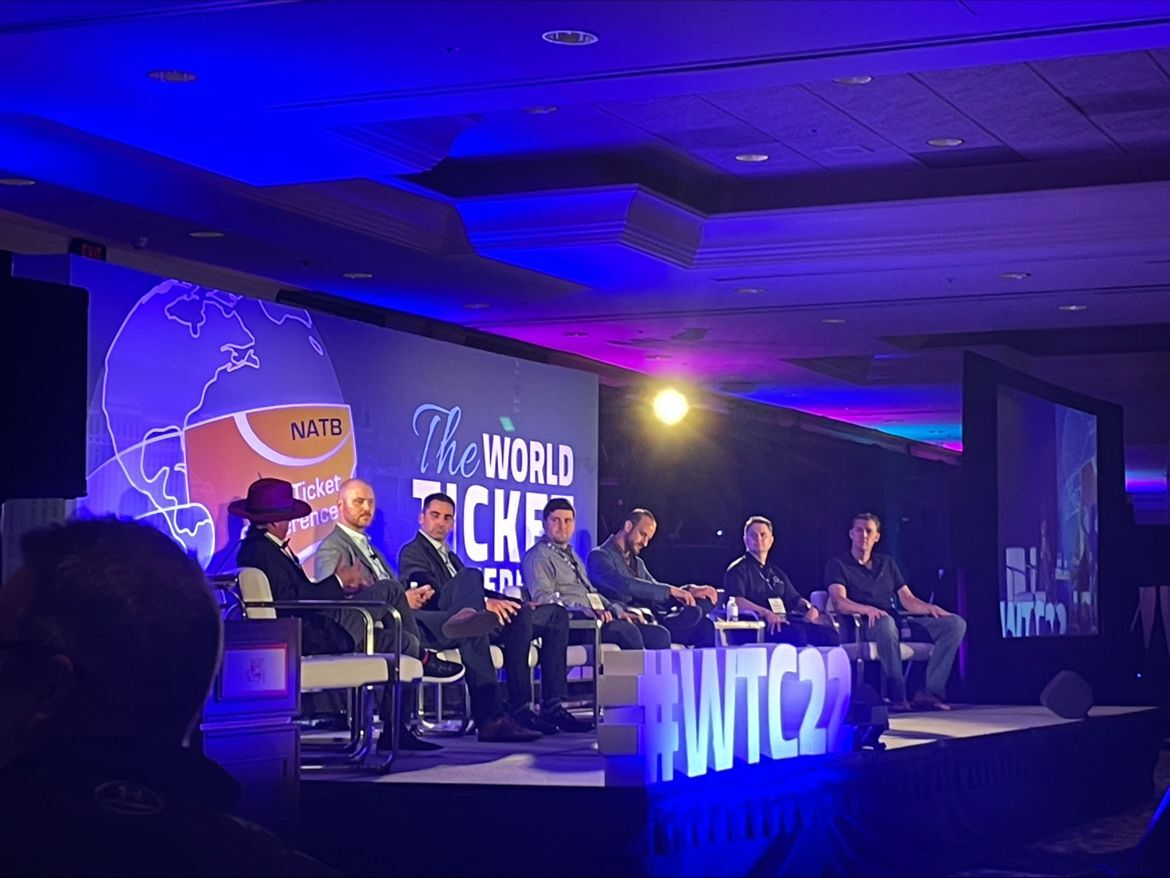
The 2022 World Ticket Conference shed light on new technologies, pricing, consumer protection, and ticketing and events trends. In this guide, we will bring you up to speed on the biggest takeaways from this year’s conference.
The State of the Ticketing Industry in 2022
The theme of the State of the Industry presentation and WTC 2022, in general, was how the ticketing industry has bounced back since Covid-19. The second quarter of 2022 showed a growth of 100% compared to the same period in 2019 (from $373M to $779M), which proves the industry is back in business.
Speakers at the Exchange Panel compared this year’s ticketing industry to the roaring ’20s in terms of growth. Whether due to inflation or the high consumer demand to go to shows and events, the average ticket price rose by nearly 16% since the pandemic.
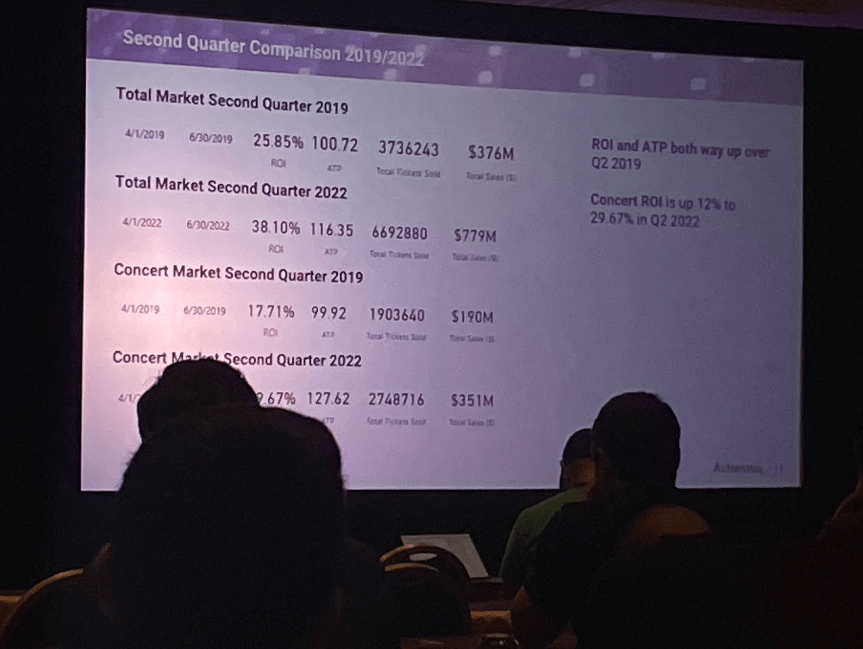
A Second Quarter Comparison was featured at the State of the Industry Presentation
The subject at the forefront of many speakers’ minds at this year’s conference was the convergence of the primary and secondary markets. Many venues and content owners are using multiple channels to sell tickets, allowing them to connect secondary ticketing providers with the primary market.
Presenters at the Exchange Panel encouraged teams and venues to forge partnerships with secondary sellers, saying “Get eyeballs on your tickets - everyone must work together to sell.” They noted that at this point, primary and secondary markets have become one, as boundaries between the markets have fallen.
Other hot topics of discussion at the 2022 World Ticket Conference were ticket transferability in the digital age, the relationships between marketplaces and brokers, and the industry-wide effects of Ticket Master and Live Nation’s 2010 merger.
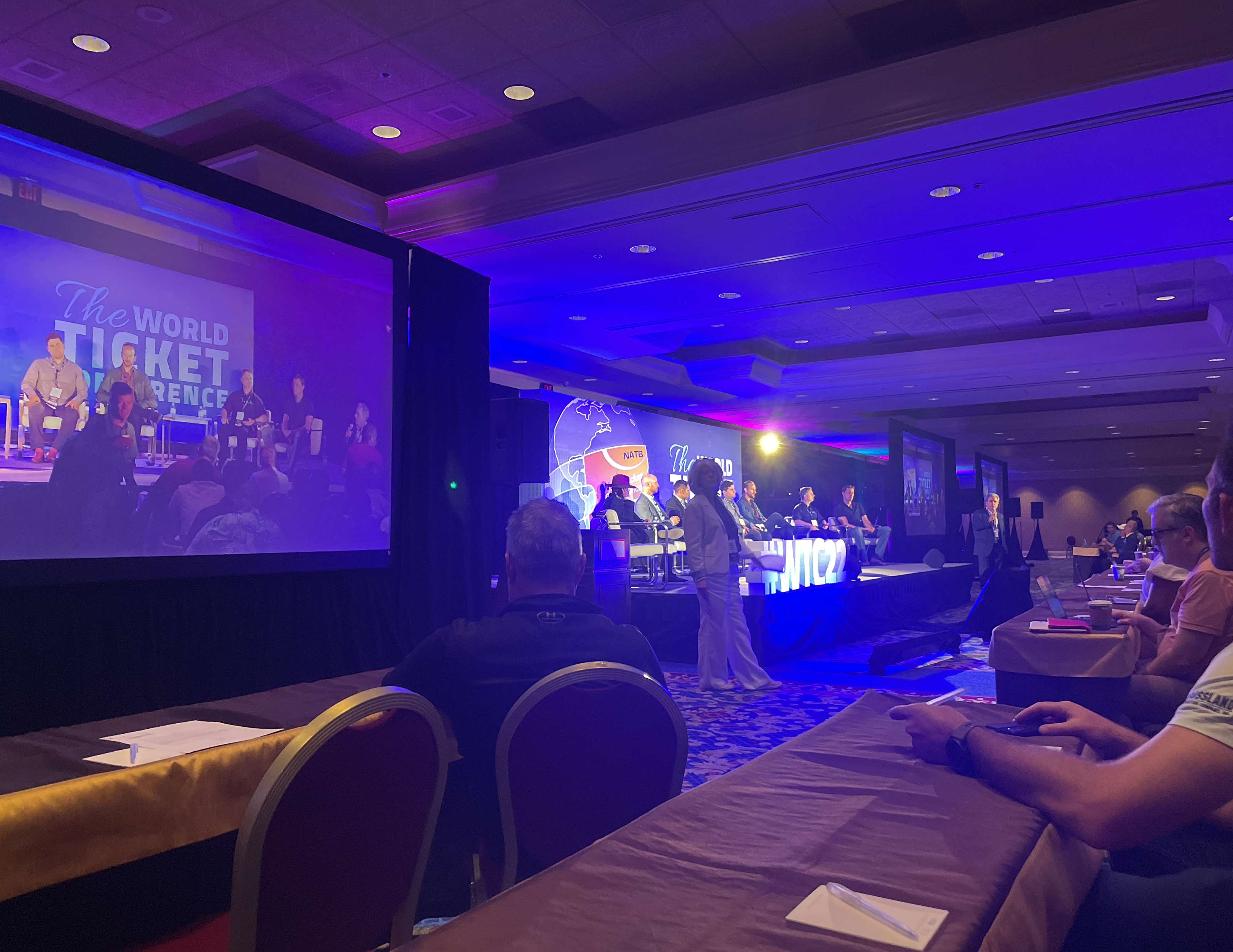
Speakers at the Exchange Panel
What’s Going on in Pricing
Over the last two years, the industry has seen dynamic pricing continue to grow in popularity as it has been implemented by many of the biggest players in ticketing. Dynamic Pricing allows ticket marketplaces and sellers to change the price and fees of a ticket based on demand. Dynamic pricing can be seen in many forms, from time-based (“early bird” tickets), peak times, segmented, and penetration.
From Ticketmaster to the NFL, we’ve seen dynamic pricing gain traction over fixed prices for a variety of reasons. Shifting prices for concerts and other events are often based on market demand, and it’s a strategy that many in the industry have been using for years to fill seats, strengthen ticket value, synchronize demand, and use as a way to remain competitive.
As live shows, festivals, and sports events grow from consumer demand, the dynamic pricing model is seen by many as the only way for the entire industry to recover. Additionally, there have been new tools to help brokers and marketplaces adapt to dynamic pricing. Some of these tools provide data to shift pricing and help brokers and marketplaces better price tickets.
During the Annual Meeting, there was a discussion about all-in pricing, a model that has great consumer backing and is even becoming the law in some places. All-in pricing means that ticket prices must show the entire cost of the financial transaction, including all taxes and fees.
All-in ticket pricing could be a game changer for consumers, resellers, and marketplaces - better and for worst. In Canada and the US, some state and province governments are already requiring all-in pricing. This summer in New York, a bill targeting hidden fees was signed into law. The law is designed to increase transparency for consumers purchasing tickets to live events, banning hidden fees and expanding penalties for the use of “scalper bots and ticket purchasing software.”
How Ticketing Technologies can Protect Consumers and Fight Fraud?
While WTC 2022 included talks on the coolest technologies like NFTs and crypto payment methods and seat browsing and selection app features, the topic we found most compelling was digital tickets.
Why is this technology so exciting? Because it helps to counteract common physical ticket fraud, provides safety and convenience for consumers, and comes at a low cost for venues. Also, it doesn’t hurt that it’s projected to become a $72B industry this year in the US!
PGA Tour’s Ryan Meyer said at the conference said that they are now at “75 percent digital”. While Covid-19 helped skyrocket digital and contactless tickets, consumers have also been long awaiting a better alternative to Will Call, mailed tickets, and printed tickets at home.
With the rise of digital tickets, transferability has become a much-discussed subject. Many venues are still not offering transferable tickets, teams are tracking transfers and revoking season tickets, and some ticket transfers are not being accepted due to technical and human errors. Managed delivery is considered critical for venues to avoid such issues as ticket screenshots, transfer problems, barcode streaming, friendly fraud, and account surrendering.
With managed delivery, ticketing apps can release tickets and QR codes using personalized links, times of release, and day of. It also can allow for tracking detailed delivery information, such as when tickets were viewed and downloaded, and which IP and device were used.
Other growing technologies are helping to prevent bots from buying tickets by prioritizing buyers in the queue based on criteria such as the age of the email account, how often they purchase, and how new their marketplace account is.
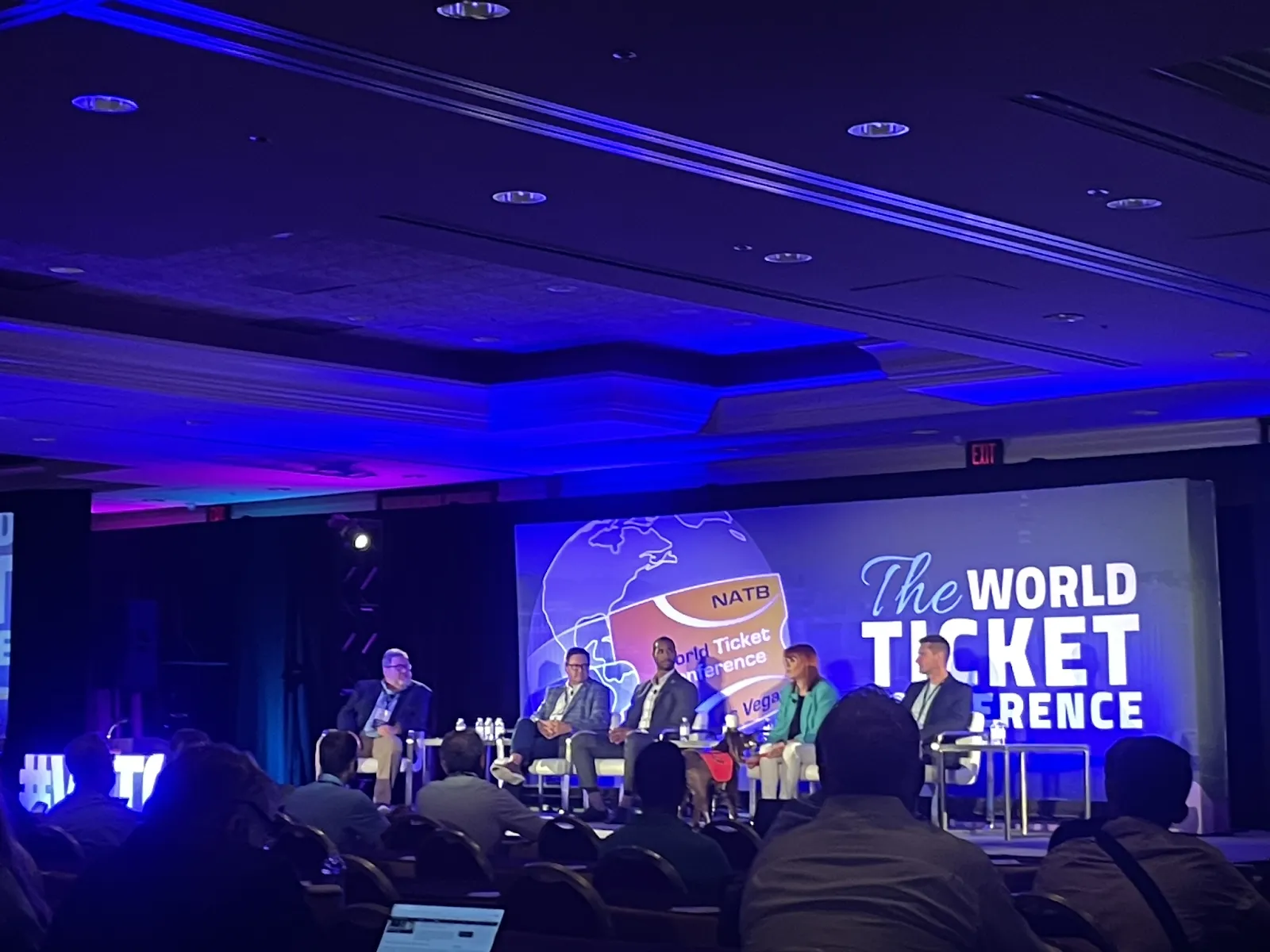
Panel Discussion with Derek Palmer from Project Admission, Softjourn’s client.
Point of Sale Software is Huge for the Secondary Ticketing Market
Other cool tech discussed at WTC 2022 included tools for Point of Sale (POS). Unlike the POS systems commonly thought of as the device or software used at a cash register, in the secondary market, POS is a cloud-based software used as a centralized location where inventory is uploaded and managed. Brokers can choose which marketplaces they’d like to list tickets on, and if uploaded on the POS, the price of the ticket will be reflected and synchronized in real-time across all marketplaces. This means that if a ticket sells on one marketplace, the POS will remove the ticket from other marketplaces.
Secondary markets and ticket resellers are also utilizing new software to verify barcodes on uploaded tickets before selling them to consumers. This assures buyers that their digital tickets will be legitimate on the day of the game or show.
Data is Key
When it comes to ticketing, there is no such thing as too much data. From brokers to content providers, everyone who wants to succeed in the industry should realize the importance of collecting, analyzing, and using data-based strategies and decision-making.
Brokers are using data to determine which types of tickets to sell to what types of events, which marketplaces are the best for getting buyers for certain ticket types, and how to best price the tickets they have.
Marketplaces are relying on data to understand who they are targeting, so they can promote events and tickets that their consumers want. This means that they are more often collecting data and information about their buyers and their buying habits and behaviors.
Content providers are using consumer data collection and analysis to personalize the fan experience. They are using this data collected from engagement apps and social media to better understand what new generations of fans want in venues and at events.
Through thoughtful social media campaigns, fan engagement apps, and brand-building strategies during the on and off-season, content providers are figuring out how to make events more meaningful to attract and retain loyal fans all year long.
For venues and stadiums, there are more ways than ever to sell merchandise, food, and beverages. Using contactless ordering helps fans with accessibility issues, adds convenience for those looking to avoid long concessions lines, and allows event organizers and merch sellers to gain valuable insights from the consumer data collected from orders.
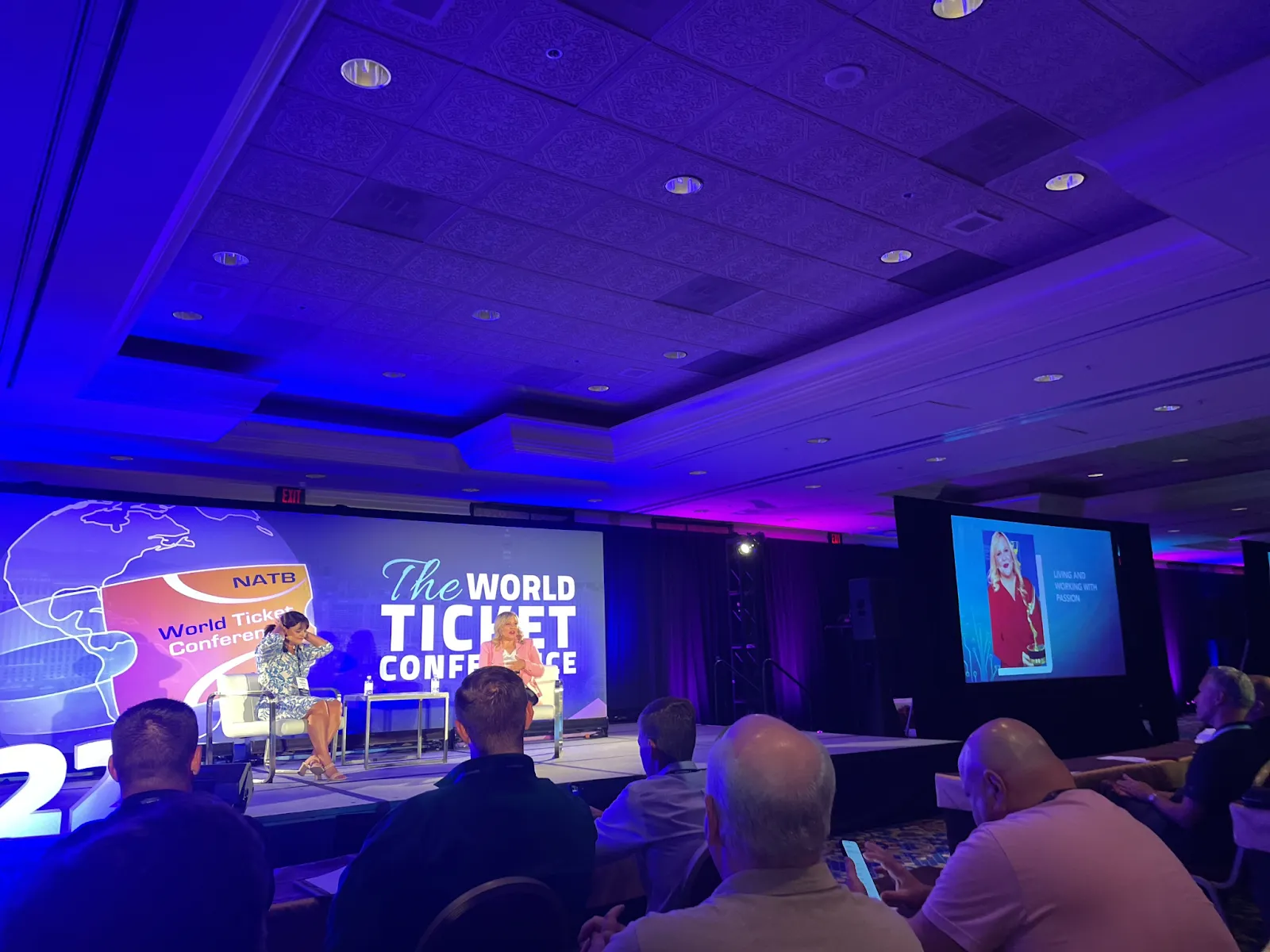
Holly Rowe, ESPN lead reporter, delivering her Keynote Speech
The World Ticket Conference featured Holly Rowe, one of the lead reporters for ESPN, as the 2022 Keynote speaker. She shared, “We cannot understate the importance of building relationships [in the industry].” We at Softjourn appreciated this sentiment as we found WTC 2022 to be an incredible opportunity to connect with many of the ticketing industry’s best professionals and learn about what the future of ticketing holds.











